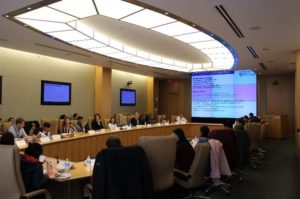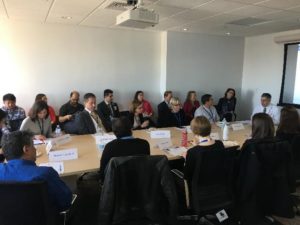06 May Petri Dishes: From the Immediate Past-Director: April 2019 Issue
A Note From the Immediate Past-Director

The outstanding work of the Brigham research community is what drives us forward towards our goal of a healthier world through scientific discovery. Being a part of the
Brigham Research Institute leadership has given me broader exposure to our passionate and talented research community; I have been both inspired by what I’ve seen and honored to continue to serve in this capacity.
During my tenure as BRI Director we were able to re-allocate our budget and use funds to set up two new award mechanisms (Next Gen BRI Awards and BRI Pilot Awards) to promote collaboration and encourage new areas of research. In this issue I am proud to highlight three exceptional researchers who have recently received NextGen Awards.
One of my favorite activities as a member of the BRI Executive Committee is attending our bi-annual faculty and trainee lunches. So many important themes have emerged from these gatherings, which really help direct the activities of the BRI. See below for recaps of our recent lunches.
As you may know, a goal of the BRI is to raise the profile of research within the Brigham community, as well as to the larger public population outside of the hospital. In service of this goal, for the last six years the BRI has participated in the Cambridge Science Festival, a Boston-wide series of events promoting science and technology during April school vacation week. Read more below about the Science Slam that the BRI co-hosted this year as part of the festival.
Lastly, in our March newsletter we highlighted our interest in continuously improving research communications. Accordingly, this month, we are excited to launch a new Research Helpline to help answer your questions and concerns in a more timely and effective manner. I’m hoping it will help reduce administrative burden on the research community thereby allowing you to devote more of your efforts to the actual science. As always, we welcome your feedback.
Thanks,
Elizabeth Petri Henske, MD
Congratulations BRI NextGen Awardees
In order to catalyze the BWH research community’s ability to better and more quickly respond to a constantly evolving scientific landscape and to help them keep pace with rapid developments in technology, the Brigham Research Institute (BRI) launched two different variations of NextGen BRI awards in 2018. Investigators could request up to $5,000 to establish affinity groups or up to $50,000 to support collaboratives.
An affinity group is defined as a group of researchers with common exploratory interests and goals with a broader perspective beyond the research interests of the individuals in the group. Collaboratives are activities where a collaborative response is critical. Examples of such activities may include an imminent RFA, a specific institutional need/priority or other precipitating event(s) and collaboration in this case may be defined internal (inter departmental/divisional (for department of medicine)) or external (interinstitutional). Congratulations to our three Next Gen recipients:

Choi-Fong Cho, PhD
Instructor, Department of Neurology
3-D Printing of the Blood Brain Barrier
NextGen Collaboratives Recipient
Wilfred Ngwa, PhD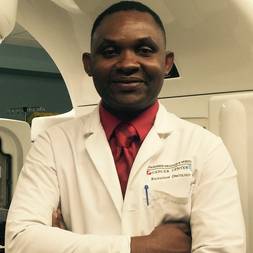
Assistant Professor, Department of Radiation Oncology
Catalyzing Global Health Collaborations at Brigham Health
NextGen Affinity Group Recipient
Timothy Smith, MD, PhD
Assistant Professor, Department of Radiation Oncology
Computational Neurosciences Outcomes Affinity Group
Affinity Group Recipient
Science Slam Success
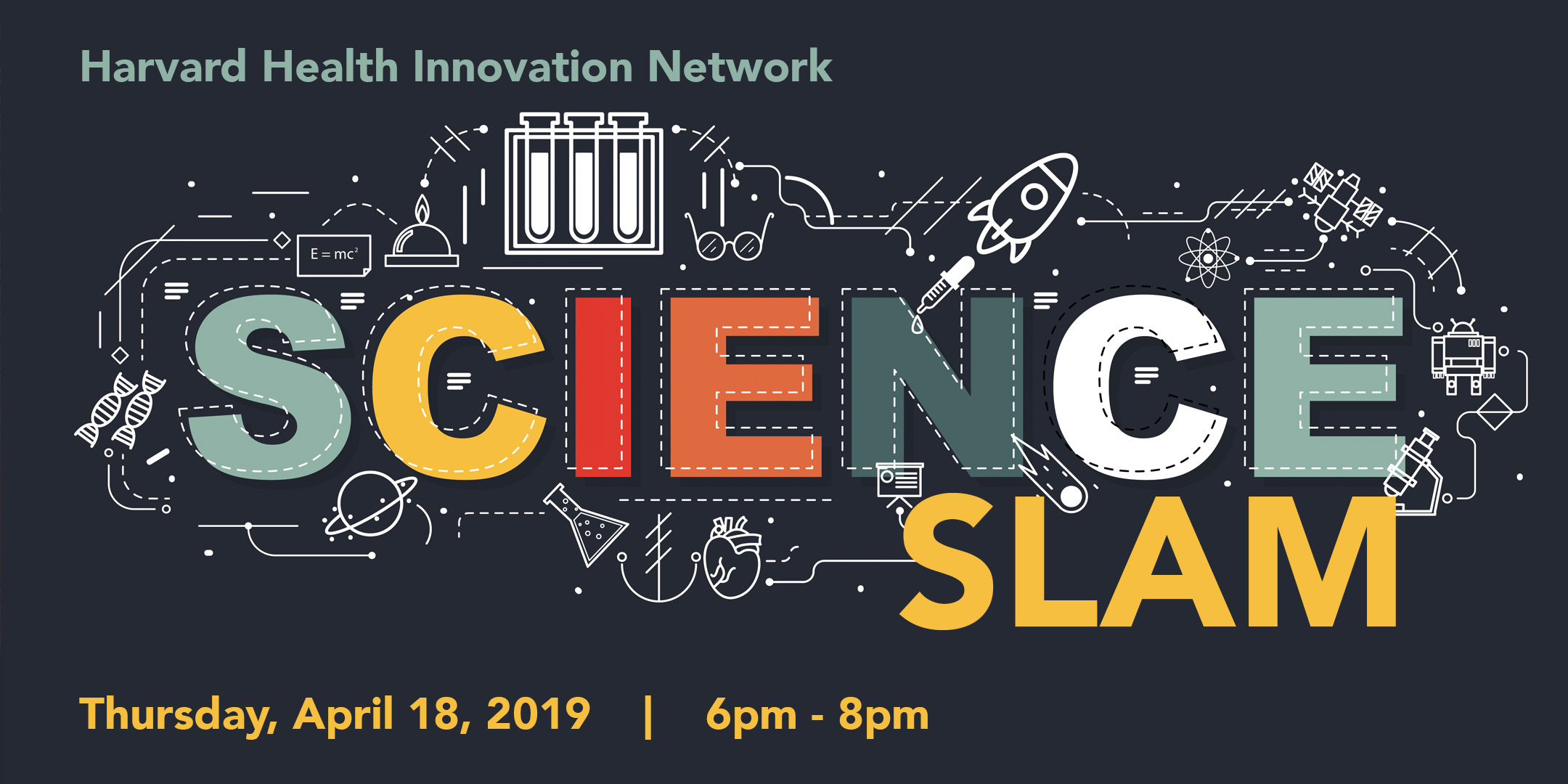
On April 18th, the BRI co-hosted a Science Slam with Massachusetts General Hospital (MGH) and other institutions that comprise the Harvard Health Innovation Network (HHIN). The event was held at Daedalus Restaurant and Bar as a part of the Cambridge Science Festival.
HHIN members, colleagues, friends and family gathered to hear several brave “slammers” test their skills as science and/or health care communicators by pitching their research and innovations to the crowd. A range of original and inventive topics from impassioned researchers populated the restaurant. Each presenter had just three minutes to grab the audience’s attention and engage them with their focus area. Yielding to the “no PowerPoint policy,” slammers were left to battle it out with just their brains and presentation skills; an ability that can be decisively hard to come by.
We all know the incredible depth and breadth of knowledge that all of our investigators possess, however, it can be quite difficult to effectively communicate science in a way that is interesting and descriptive, while at the same time understandable for the lay audience. Many people, no matter what setting they are in or topic they are presenting on, tend to to assume that the audience already understands the material. However, at events such as these, onlookers could include children, non-scientists, or even potential donors without a healthcare background. This Science Slam was a chance to hone in on and develop these skills and provided a forum in which they could learn to move from “data dumping” to story telling.
Laura Kiesel, a freelance writer from the Harvard Health news blog, impressed the crowd with her thoughts on chronic pain, and won the Science Slam, receiving a fun prize pack from the hosts.
The BRI and HHIN hope to continue to bring researchers and their fascinating ideas forward to the public who may not hear them otherwise. Our goal is to raise awareness to the exceptional research that takes place within our institutions and open people’s eyes to all that goes on behind the scenes in the vast world of health care.
Cores and Resources Fair
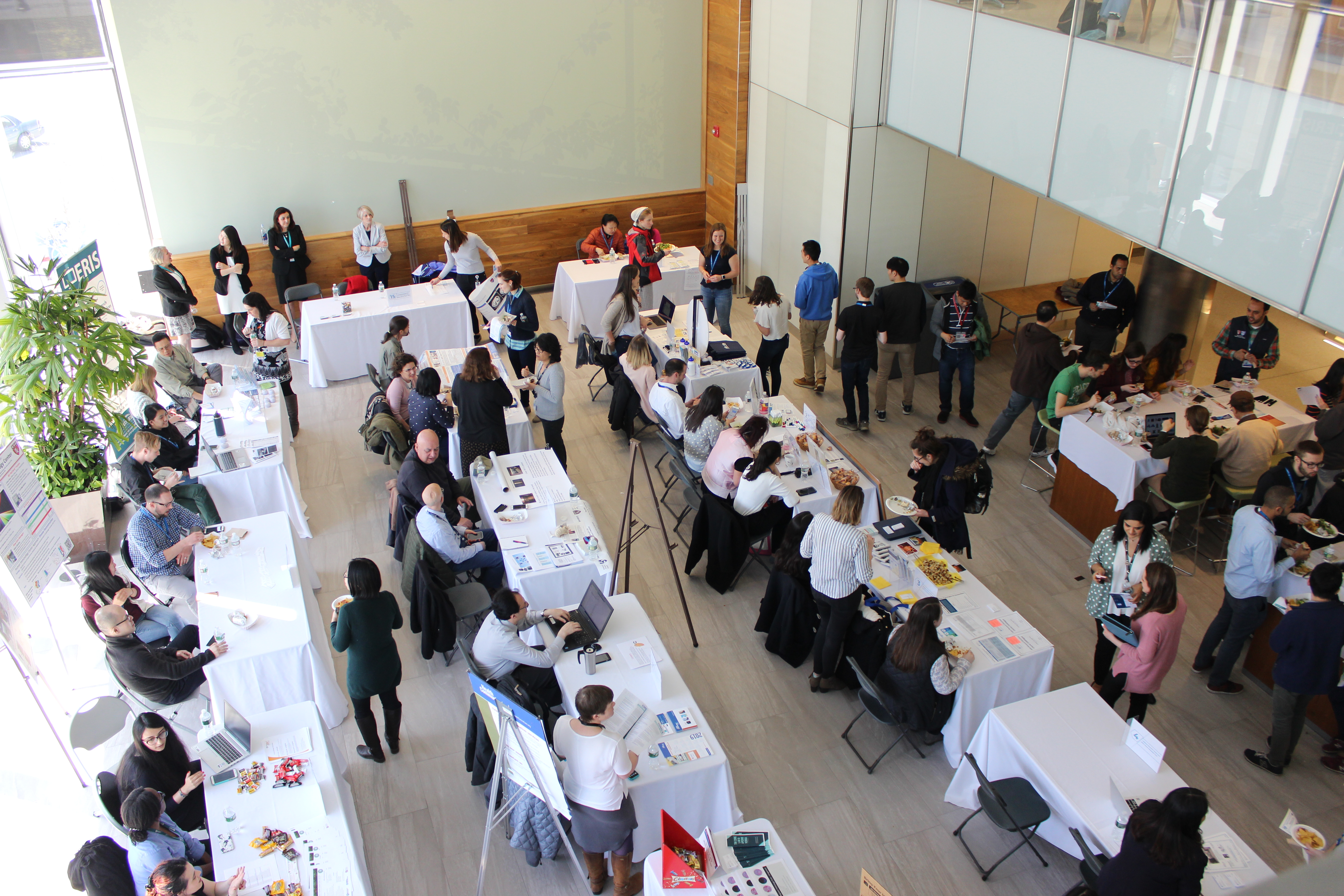
Over 80 people registered to attend the annual Cores and Resources Fair that took place on Monday, April 29. This event features partners-wide core facilities and provides the opportunity for the BWH research community to learn more about the numerous resources available the them.
29 cores and resources participated by providing an informational table with brochures, business cards, and other materials of interest to the research community. Just of few of these tables included the All of Us Research Program, the Brigham Research Assay Core, Canary Natural Language Processing Platform, the Mouse Behavior Core, Partners Healthcare Biobank, and many more.
Core facilities, such as these, bring state-of-the-art instrumentation and methodologies to BWH and all Partners campuses. More than 80 cores have been established over the years in order to share knowledge and resources with investigators, as well as improve research funding and overall outcomes. You can learn more about these resources and how to take advantage of them
here.
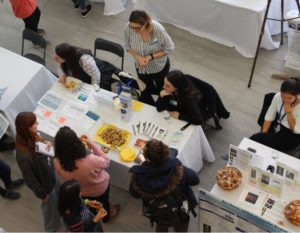
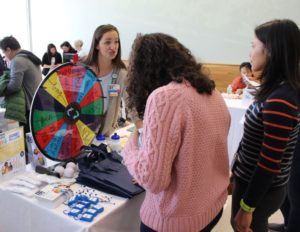
Research Faculty and Trainee Lunches
This month we hosted the Postdoc Luncheon and the Instructor Luncheon, which were both very well attended. These lunches serve as a forum for research faculty and trainees to ask questions, voice concerns, and network with each other.
Common themes emerging from these events include interest in funding opportunities, events, meeting colleagues, and learning more about the BRI.
At this month’s instructor lunch, one faculty member noted that her continued enthusiasm for these lunches was sparked by forming a new collaboration with someone as a result of a prior lunch.
Please
click here to learn more and sign up for the appropriate lunch based on your rank!
Postdoc Luncheon: 41 Attendees
Instructor Luncheon: 31 Attendees
Research Communications

We have some exciting news! Do you have questions or concerns, but don’t know who to reach out to? Send them to our new BWH Research Helpline.
We heard what you’ve had to say and are excited to roll out this new email in order to have one central place where the BWH research community can send any and all of their research related questions.
We look forward to answering your questions!
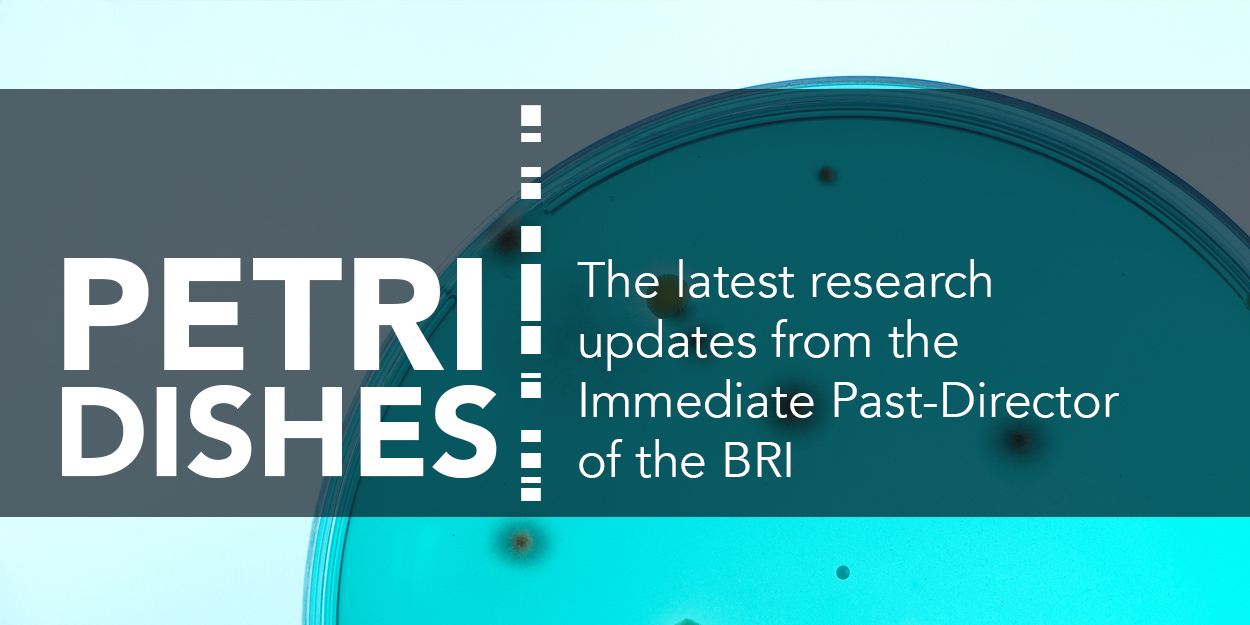

 We have some exciting news! Do you have questions or concerns, but don’t know who to reach out to? Send them to our new BWH Research Helpline.
We have some exciting news! Do you have questions or concerns, but don’t know who to reach out to? Send them to our new BWH Research Helpline.








